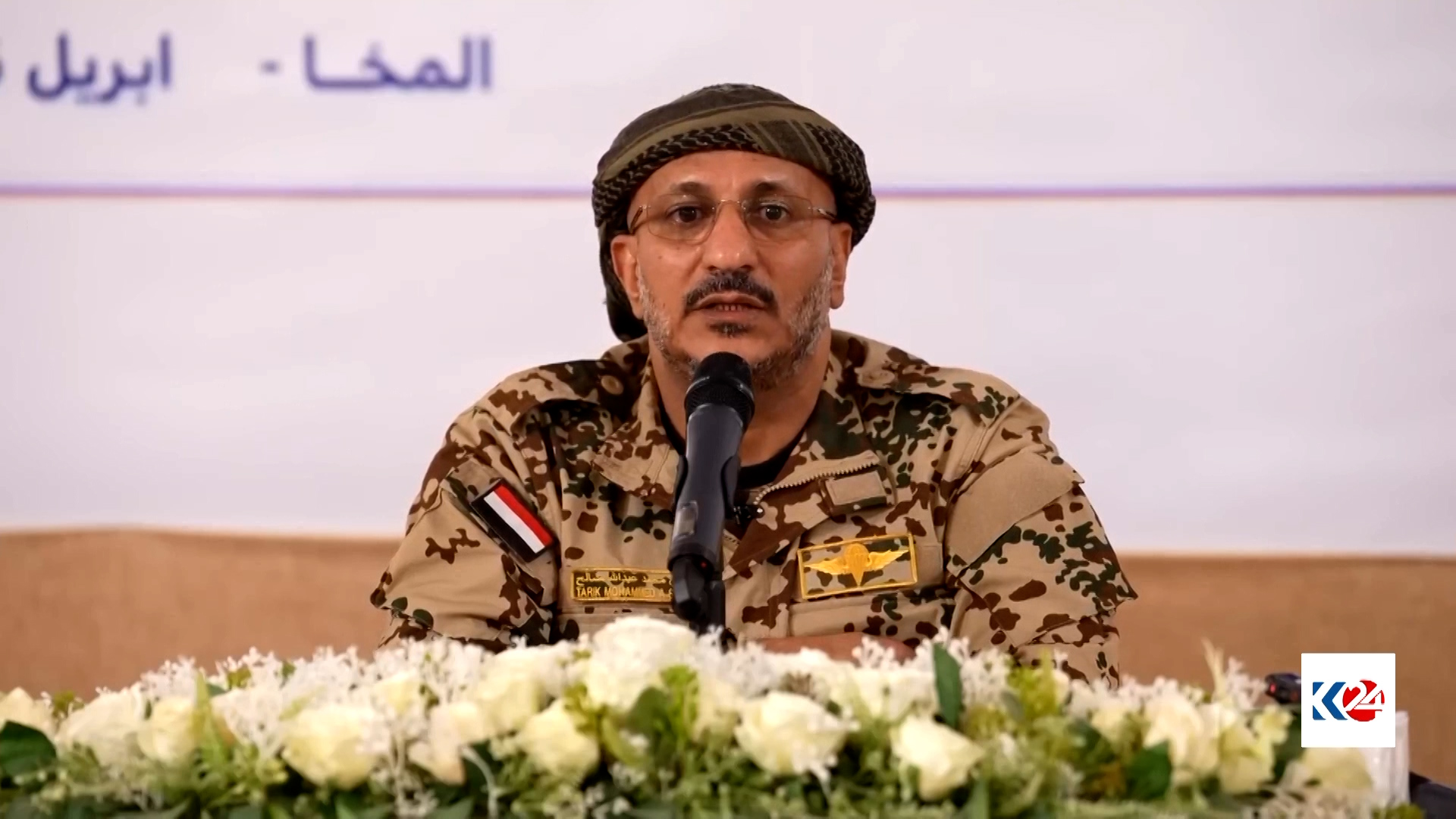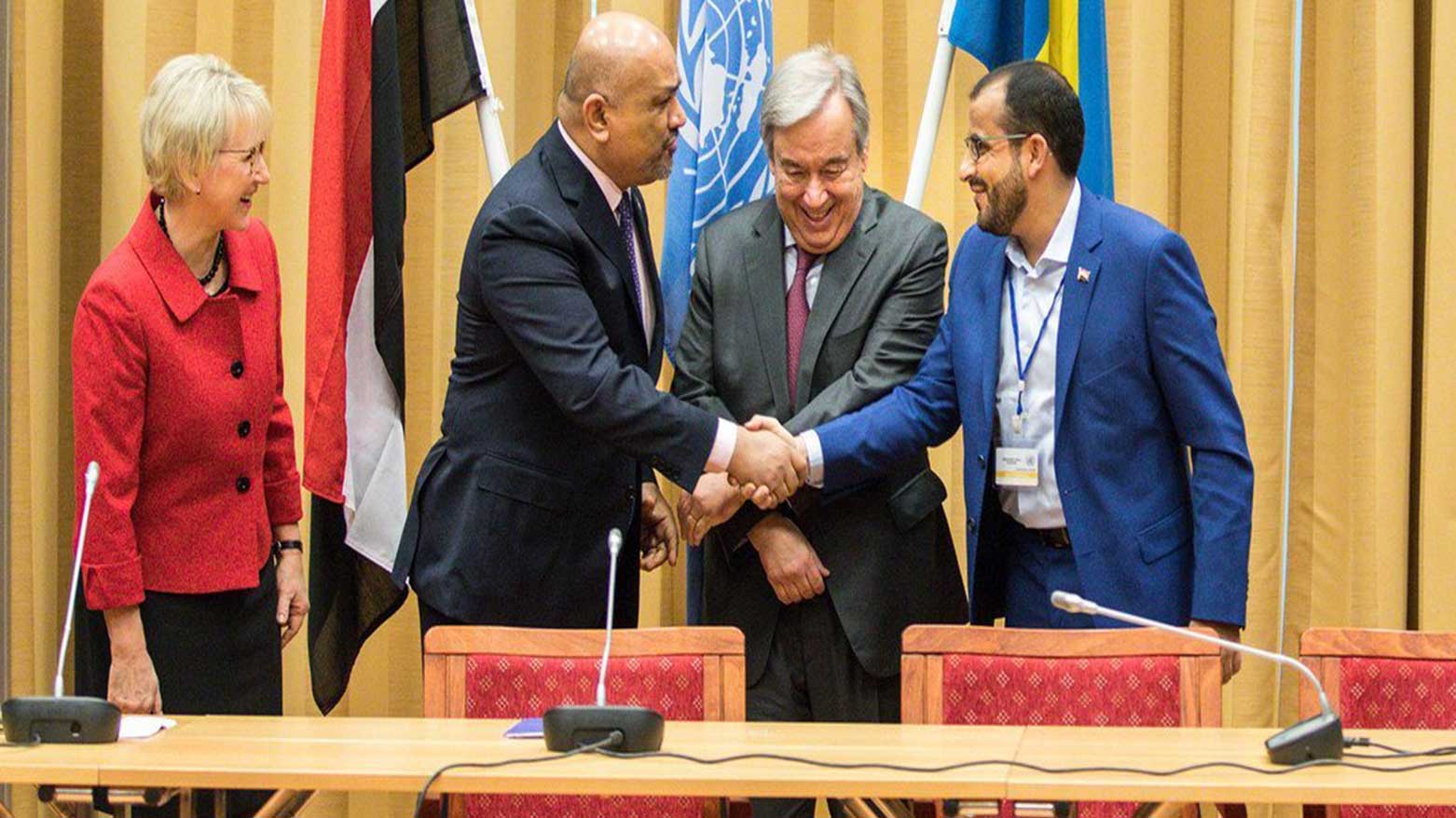Yemeni Government Eyes Ground Offensive Against Houthis as Iran’s Influence Wanes
Yemen’s Leadership Council's Vice President Tareq Saleh stated that an upcoming meeting between the Leadership Council and the internationally recognized Yemeni government would focus on initiating the ground offensive.

ERBIL (Kurdistan24) — Amid weakening Iranian influence in the Middle East, the internationally recognized government of Yemen is preparing to launch a major ground offensive against the Iran-backed Houthi rebels, with aerial support from the United States and logistical coordination from Gulf allies.
The anticipated military operation will begin in Yemen’s western Hodeidah governorate and move toward the capital, Sanaa—currently under Houthi control. This new push signals a strategic shift aimed at ending years of brutal conflict and instability in the war-torn nation.
U.S. Backing Strengthens Yemen’s Resolve
The well-known Yemeni political analyst, Ahmad Hazaa, told Kurdistan24 that the Houthis are now in a considerably weakened state, partly due to sustained U.S. airstrikes in response to the rebels’ repeated attacks on commercial shipping vessels in the Red Sea.
“Washington’s continued military pressure has significantly eroded the Houthis’ strength,” Hazaa said. “The time has come for Yemen’s legitimate government to reclaim its authority, particularly as the Houthis’ aggressive behavior threatens global trade routes and regional stability.”
The U.S. Navy has been actively intercepting drone and missile launches by the Houthis, who have disrupted maritime traffic through the strategic Bab el-Mandeb Strait—through which roughly 10% of global trade passes.
Unified Political Front in Yemen
Yemen’s Presidential Leadership Council's Vice President Tareq Saleh stated that an upcoming meeting between the Leadership Council and the internationally recognized Yemeni government would focus on initiating the ground offensive.
“We support all measures aimed at liberating Yemen from Houthi occupation,” Saleh stated. “We also urge the international community to assist us in ridding our country of this militia group that has held our people hostage for years.”
Saleh emphasized that any land operation must be well-planned and decisive, noting that the outcome of the Yemen conflict will heavily influence the wider regional balance.
The Stakes: Peace or Prolonged War
The upcoming ground operation places Yemen at a historic crossroads—one that could shape the country’s future for generations. A decisive and coordinated effort to reduce the Houthi stronghold offers a unique opportunity to restore stability, uphold national sovereignty, and pave the way for sustainable peace.
While the Houthis have shown signs of diminished capacity amid ongoing pressure, they remain deeply embedded within densely populated urban centers, creating operational challenges for the advancing forces. As such, the complexity of the mission lies not in the resolve of the Yemeni government or its allies, but in ensuring the safety of civilians and preserving the country’s infrastructure during the operation.
Military and political observers note that this could be a pivotal moment—not just to end the years-long conflict but also to build a new era of governance and reconciliation. A successful campaign could signal the beginning of Yemen’s recovery, allowing for renewed international engagement, reconstruction efforts, and the return of displaced families to their homes.
Years of Devastation
The Yemen conflict, now in its second decade, erupted in 2014 when the Iranian-backed Houthi militia forcefully seized the capital, Sanaa, toppling the internationally recognized government. What began as a localized power grab quickly evolved into one of the region’s most complex and enduring crises—an arena for regional rivalries, particularly between Iran and a Saudi-led coalition. The consequences have been catastrophic: hundreds of thousands killed or wounded, millions displaced, and large swaths of the population driven to the brink of famine.
Beyond the staggering humanitarian toll, Yemen’s economy has been shattered, its institutions weakened, and its social fabric torn by cycles of violence. Despite numerous ceasefire attempts and rounds of UN-brokered negotiations, durable peace has remained elusive.
However, with Iran’s regional influence showing signs of retreat—compounded by mounting domestic unrest, crippling sanctions, and shifting regional dynamics—the Yemeni government and its international allies view the current moment as a critical inflection point. For the first time in years, there appears to be a strategic opening to reclaim lost ground, restore national unity, and halt the spiral of instability.
As hopes for a lasting resolution resurface, the coming months may prove decisive—not only for Yemen’s future but for the broader security architecture of the Middle East.

